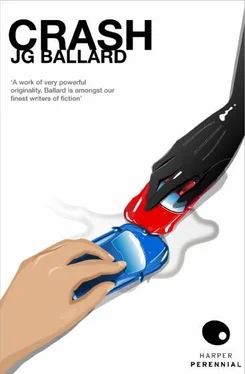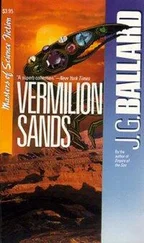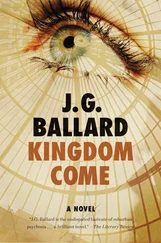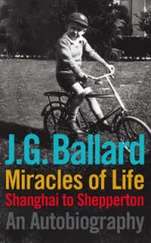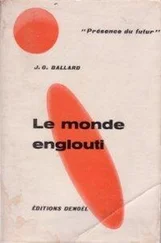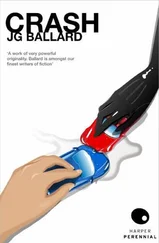On our way to Vaughan’s apartment he recognized an airport whore waiting in the forecourt of a motorway restaurant, a part-time cinema usherette for ever worrying about her small son’s defective hearing-aid. As they sat behind me she complained to Vaughan about my nervous driving, but he was watching her movements with an abstracted gaze, almost encouraging her to gesture with her hands and knees. On the deserted roof of a Northolt multi-storey car-park I waited by the balustrade. In the rear seat of the car Vaughan arranged her limbs in the posture of the dying cashier. His strong body, crouched across her in the reflected light of passing headlamps, assumed a series of stylized positions.
Vaughan unfolded for me all his obsessions with the mysterious eroticism of wounds: the perverse logic of blood-soaked instrument panels, seat-belts smeared with excrement, sun-visors lined with brain tissue. For Vaughan each crashed car set off a tremor of excitement, in the complex geometries of a dented fender, in the unexpected variations of crushed radiator grilles, in the grotesque overhang of an instrument panel forced on to a driver’s crotch as if in some calibrated act of machine fellatio. The intimate time and space of a single human being had been fossilized for ever in this web of chromium knives and frosted glass.
A week after the funeral of the woman cashier, as we drove at night along the western perimeter of the airport, Vaughan swerved on to the verge and struck a large mongrel dog. The impact of its body, like a padded hammer, and the shower of glass as the animal was carried over the roof, convinced me that we were about to die in a crash. Vaughan never stopped. I watched him accelerate away, his scarred face held close to the punctured windshield, angrily brushing the beads of frosted glass from his cheeks. Already his acts of violence had become so random that I was no more than a captive spectator. Yet the next morning, on the roof of the airport car-park where we abandoned the car, Vaughan calmly pointed out to me the deep dents in the bonnet and roof. He stared at an airliner filled with tourists lifting into the western sky, his sallow face puckering like a wistful child’s. The long triangular grooves on the car had been formed within the death of an unknown creature, its vanished identity abstracted in terms of the geometry of this vehicle. How much more mysterious would be our own deaths, and those of the famous and powerful?
Even this first death seemed timid compared with the others in which Vaughan took part, and with those imaginary deaths that filled his mind. Trying to exhaust himself, Vaughan devised a terrifying almanac of imaginary automobile disasters and insane wounds—the lungs of elderly men punctured by door handles, the chests of young women impaled by steering-columns, the cheeks of handsome youths pierced by the chromium latches of quarter-lights. For him these wounds were the keys to a new sexuality born from a perverse technology. The images of these wounds hung in the gallery of his mind like exhibits in the museum of a slaughterhouse.
Thinking of Vaughan now, drowning in his own blood under the police arc-lights, I remember the countless imaginary disasters he described as we cruised together along die airport expressways. He dreamed of ambassadorial limousines crashing into jack-knifing butane tankers, of taxis filled with celebrating children colliding head-on below the bright display windows of deserted supermarkets. He dreamed of alienated brothers and sisters, by chance meeting each other on collision courses on the access roads of petrochemical plants, their unconscious incest made explicit in this colliding metal, in the haemorrhages of their brain tissue flowering beneath the aluminized compression chambers and reaction vessels. Vaughan devised the massive rear-end collisions of sworn enemies, hate-deaths celebrated in the engine fuel burning in wayside ditches, paintwork boiling through the dull afternoon sunlight of provincial towns. He visualized the specialized crashes of escaping criminals, of off-duty hotel receptionists trapped between their steering wheels and the laps of their lovers whom they were masturbating. He thought of the crashes of honeymoon couples, seated together after their impacts with the rear suspension units of runaway sugar-tankers. He thought of the crashes of automobile stylists, the most abstract of all possible deaths, wounded in their cars with promiscuous laboratory technicians.
Vaughan elaborated endless variations on these collisions, thinking first of a repetition of head-on collisions: a child-molester and an overworked doctor re-enacting their deaths first in head-on collision and then in roll-over; the retired prostitute crashing into a concrete motorway parapet, her overweight body propelled through the fractured windshield, menopausal loins torn on the chromium bonnet mascot. Her blood would cross the over-white concrete of the evening embankment, haunting for ever the mind of a police mechanic who carried the pieces of her body in a yellow plastic shroud. Alternatively, Vaughan saw her hit by a reversing truck in a motorway fuelling area, crushed against the nearside door of her car as she bent down to loosen her right shoe, the contours of her body buried within the bloody mould of the door panel. He saw her hurtling through the rails of the flyover and dying as Vaughan himself would later die, plunging through the roof of an airline coach, its cargo of complacent destinations multiplied by the death of this myopic middle-aged woman. He saw her hit by a speeding taxi as she stepped out of her car to relieve herself in a wayside latrine, her body whirled a hundred feet away in a spray of urine and blood.
I think now of the other crashes we visualized, absurd deaths of the wounded, maimed and distraught. I think of the crashes of psychopaths, implausible accidents carried out with venom and self-disgust, vicious multiple collisions contrived in stolen cars on evening freeways among tired office-workers. I think of the absurd crashes of neurasthenic housewives returning from their VD clinics, hitting parked cars in suburban high streets. I think of the crashes of excited schizophrenics colliding head-on into stalled laundry vans in one-way streets; of manic-depressives crushed while making pointless litmus on motorway access roads; of luckless paranoids driving at full speed into the brick walls at the ends of known culs-de-sac; of sadistic charge nurses decapitated in inverted crashes on complex interchanges; of lesbian supermarket manageresses burning to death in the collapsed frames of their midget cars before the stoical eyes of middle-aged firemen; of autistic children crushed in rear-end collisions, their eyes less wounded in death; of buses filled with mental defectives drowning together stoically in roadside industrial canals.
Long before Vaughan died I had begun to think of my own death. With whom would I die, and in what role—psychopath, neurasthenic, absconding criminal? Vaughan dreamed endlessly of the deaths of the famous, inventing imaginary crashes for them. Around the deaths of James Dean and Albert Camus, Jayne Mansfield and John Kennedy he had woven elaborate fantasies. His imagination was a target gallery of screen actresses, politicians, business tycoons and television executives. Vaughan followed them everywhere with his camera, zoom lens watching from the observation platform of the Oceanic Terminal at the airport, from hotel mezzanine balconies and studio car-parks. For each of them Vaughan devised an optimum auto-death. Onassis and his wife would die in a recreation of the Dealey Plaza assassination. He saw Reagan in a complex rear-end collision, dying a stylized death that expressed Vaughan’s obsession with Reagan’s genital organs, like his obsession with the exquisite transits of the screen actress’s pubis across the vinyl seat covers of hired limousines.
Читать дальше
Конец ознакомительного отрывка
Купить книгу
